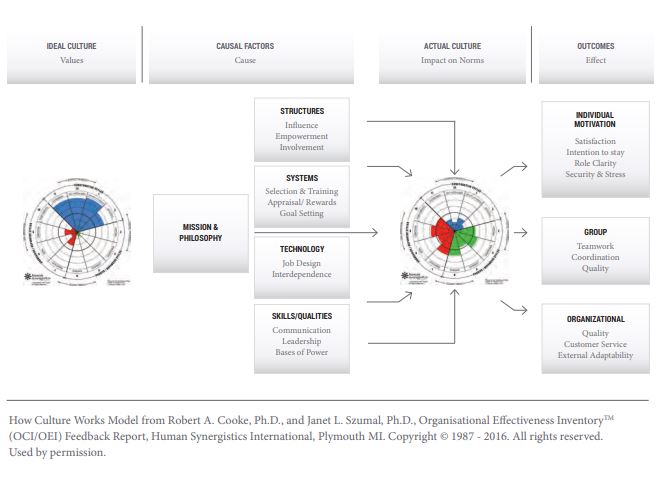Episode Overview
In this episode of Culture Bites, Dominic and Ash unpack a complaint they hear all the time: “Culture is so complex.” They argue that while organisations and consultants often make culture feel complicated and noisy, the fundamentals are actually simple.
They walk through a practical way to think about culture using four clear “buckets” – ideal culture, actual culture, what gets in the way, and the outcomes – and show how small, well-chosen changes in how you already work can create meaningful cultural shifts without massive new projects or fancy systems.
Subjects Discussed
- Why culture feels complex in today’s organisations
- The explosion of culture talk, rebranding, and “noise” in the market
- The difference between ideal culture (what you say you want) and actual culture (what people really experience)
- Using Human Synergistics’ Circumplex to visualise culture
- Values as a statement of aspirational culture – and what happens when they’re not lived
- What sits between ideal and actual culture: the way work is structured, led, and managed
- The myth that culture change requires big, complex projects
- Why one or two well-chosen actions, done consistently, can shift culture
- Performance management and appraisals as a cultural signal (not just a process)
- The role of leadership, decision-making, structure, and people systems in shaping culture
- Moving from “complex in design, exhausted in implementation” to simple in design, excellent in execution
Key Insights
- Culture already exists – full stop. You’re not “introducing” culture; you’re deciding whether the current culture is helping or hindering your strategy, performance, and people.
- Everyone instinctively knows the culture that would get the best out of them. When asked to describe their ideal culture, groups all over the world consistently describe highly constructive behaviours, even without seeing the model first.
- Four buckets make culture easier to grasp:
- Ideal culture – the behaviours and environment that would get the best out of people in your context.
- Actual culture – the real messages people get day-to-day.
- What gets in the way – the systems, structures, leadership styles, and practices that either support or block the ideal.
- Outcomes – performance, motivation, satisfaction, and other results.
- Values = aspirational culture. Most organisations have great-sounding values, but if the day-to-day experience contradicts them, people believe the actual culture, not the posters.
- Culture change isn’t about adding more work. You’re already doing performance reviews, meetings, decision-making, communication, job design, etc. The question is: how are you doing them, and what message are they sending?
- Simple shifts can be powerful. For example, turning a once-a-year, box-ticking appraisal into regular, fair, two-way conversations about development sends a completely different cultural message.
- Don’t overcomplicate action planning. One or two meaningful changes per function, done well and consistently, will have more impact than a long list of initiatives that no one has time to execute.
- Simple in design, excellent in execution. The goal is not to design a complex culture program; it’s to identify a few critical levers and execute them brilliantly.
Resources Mentioned
- Human Synergistics How Culture Works Model (culture model)
- Learn more: Interactive How Culture Works Model
- Culture Bites Podcast
- Back catalogue of episodes on culture, leadership, and behaviour change:
- Apple Podcasts: https://podcasts.apple.com/au/podcast/culture-bites/id1371885437
- “Ultimate Guide to Culture” (mentioned by Dom as a work-in-progress blog/guide)
- Check the Human Synergistics Australia site or LinkedIn for when this goes live:
- https://www.human-synergistics.com.au
Where to Learn More
- Human Synergistics Australia
Subscribe, Share & Send Us Your Questions
If you enjoyed this episode of Culture Bites, remember to:
-
Subscribe on Apple Podcasts, Spotify, or wherever you get your podcasts so you never miss an episode.
-
Share it with a colleague, leader, or team who might be wrestling with “culture complexity” and needs a simpler way to think about it.
-
Leave a review – it helps others find the show and supports the work we do.
Got a question you’d like Dominic and the team to tackle on a future episode?
👉 Email us at podcast@human-synergistics.com.au
